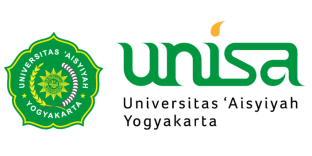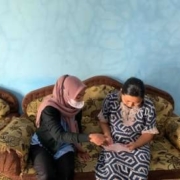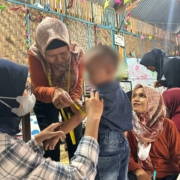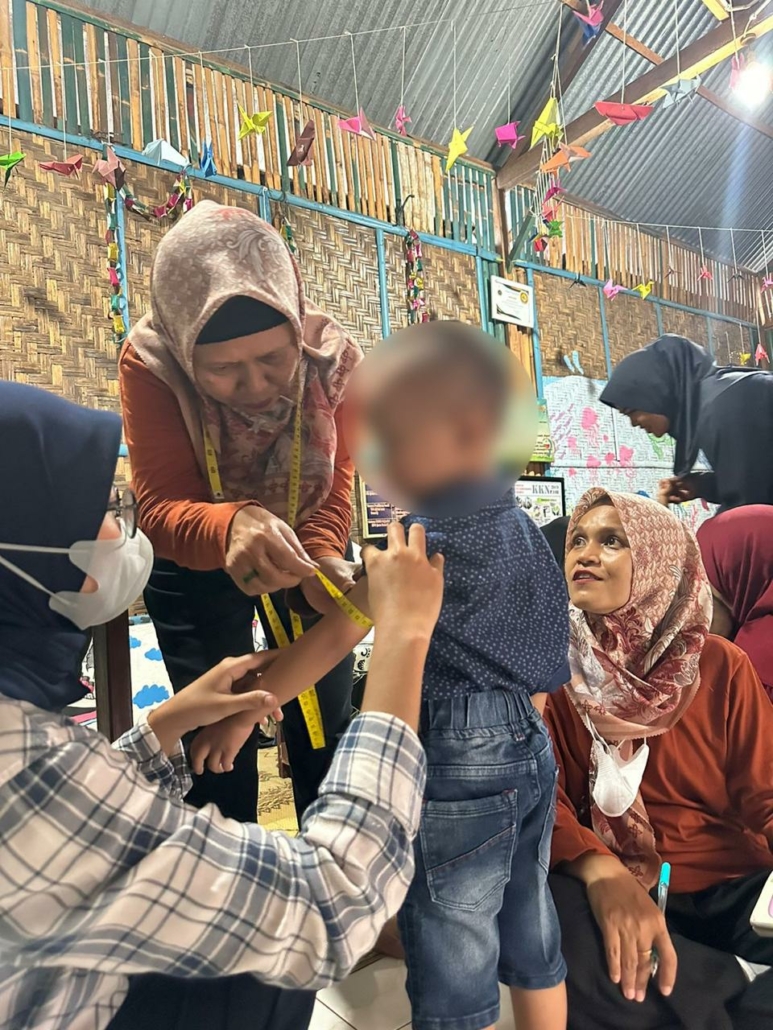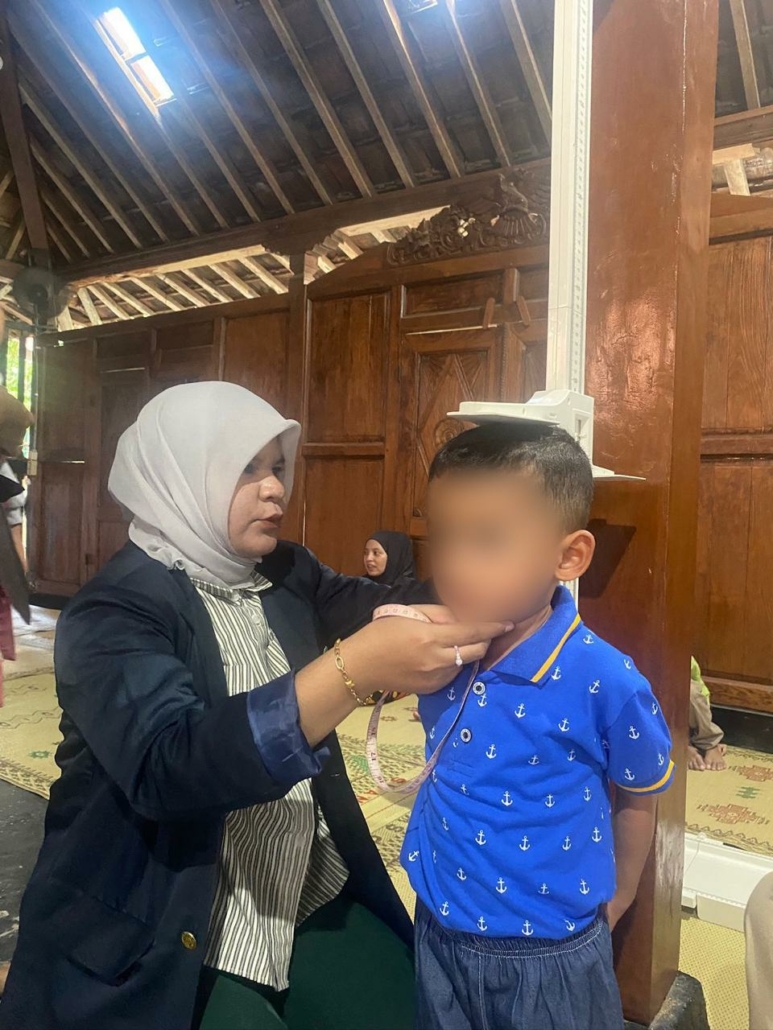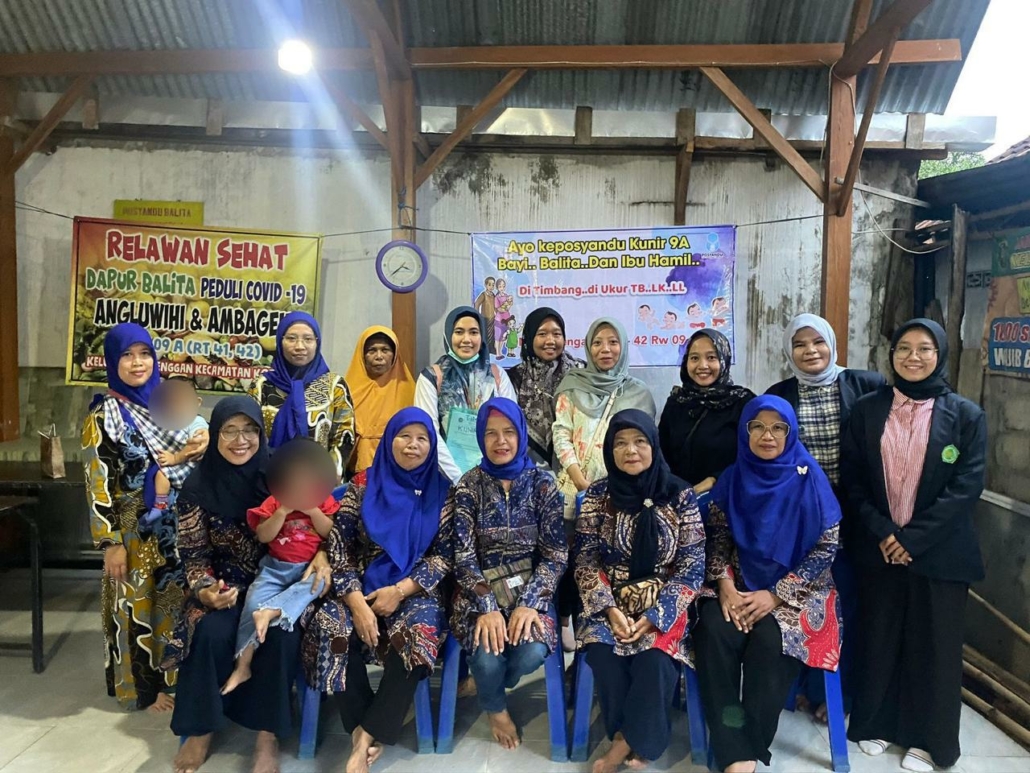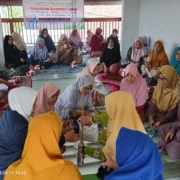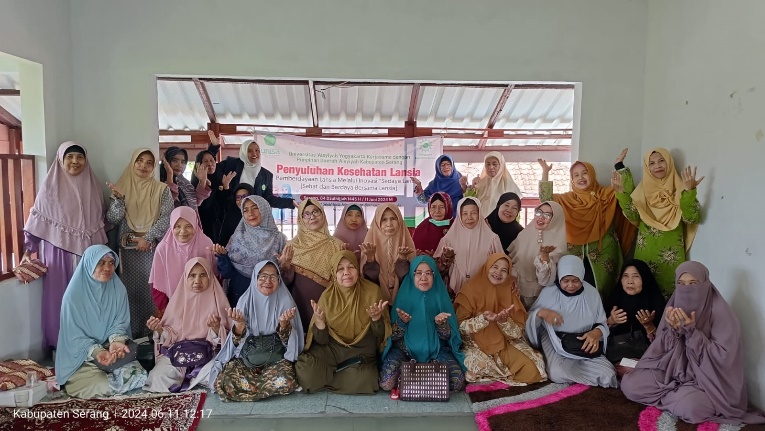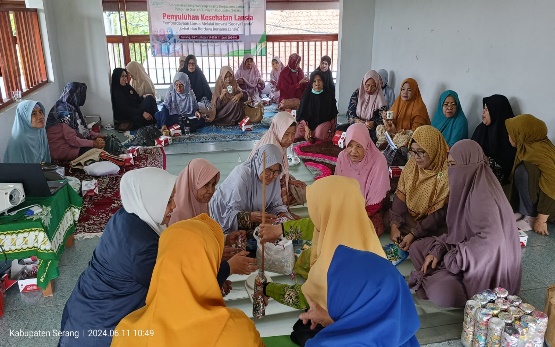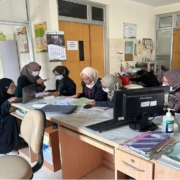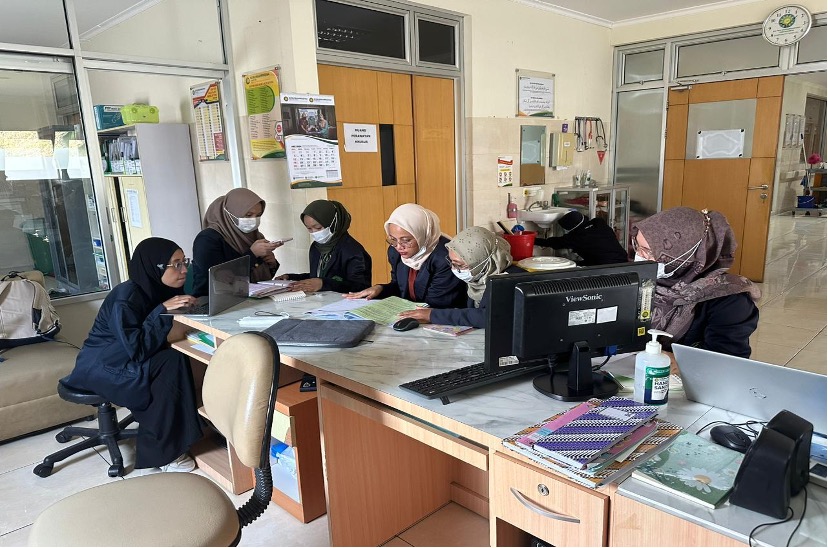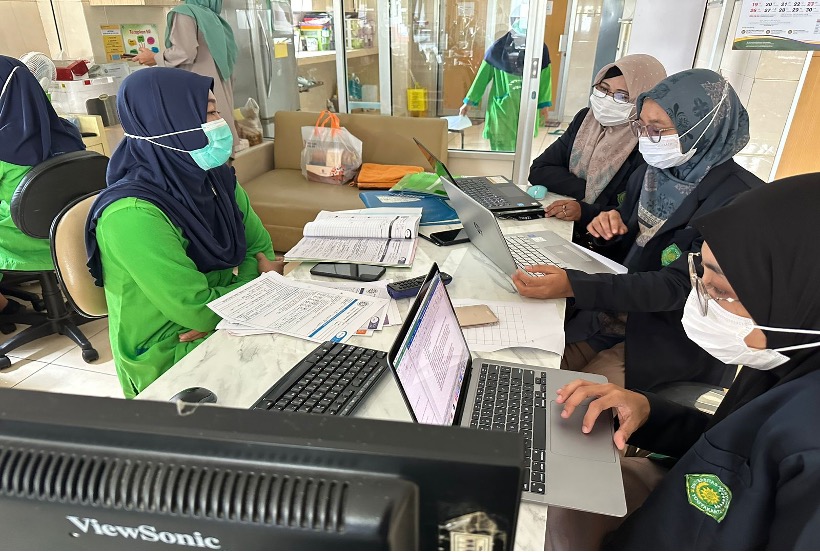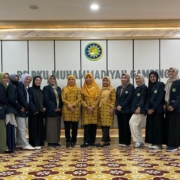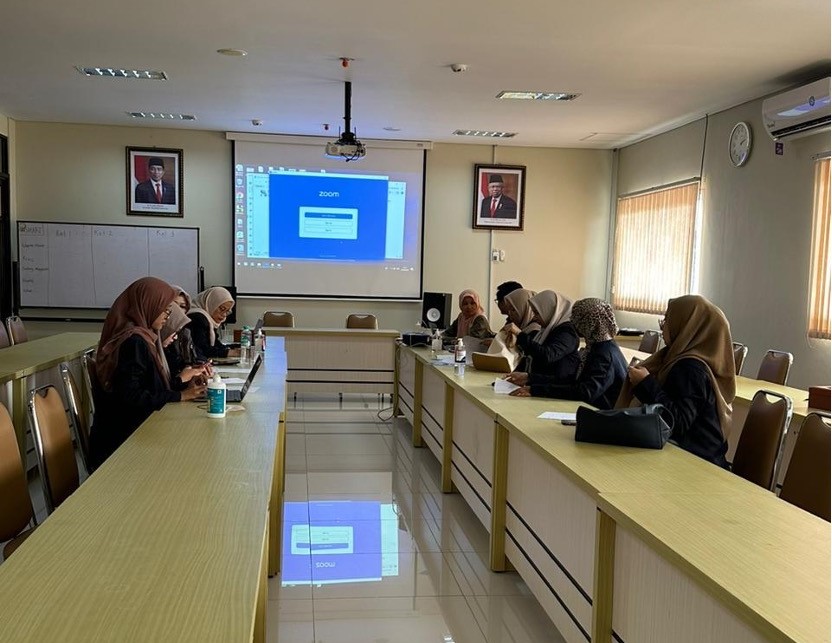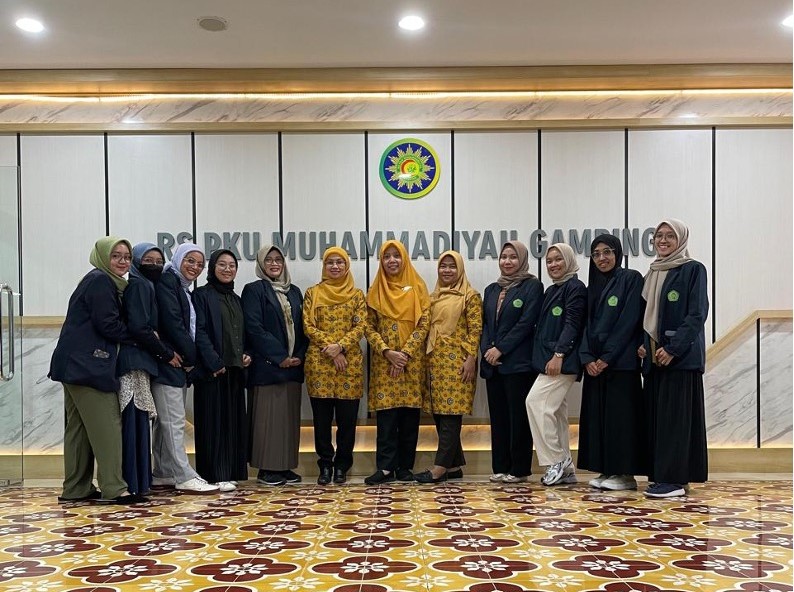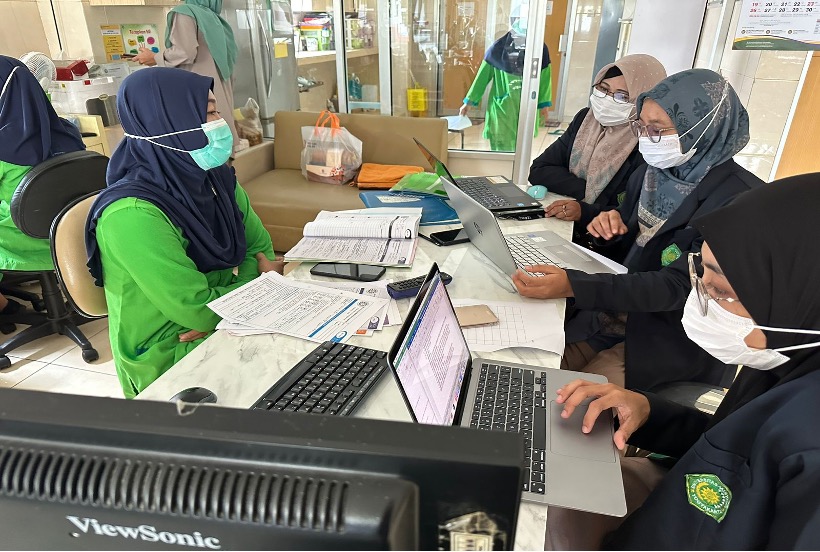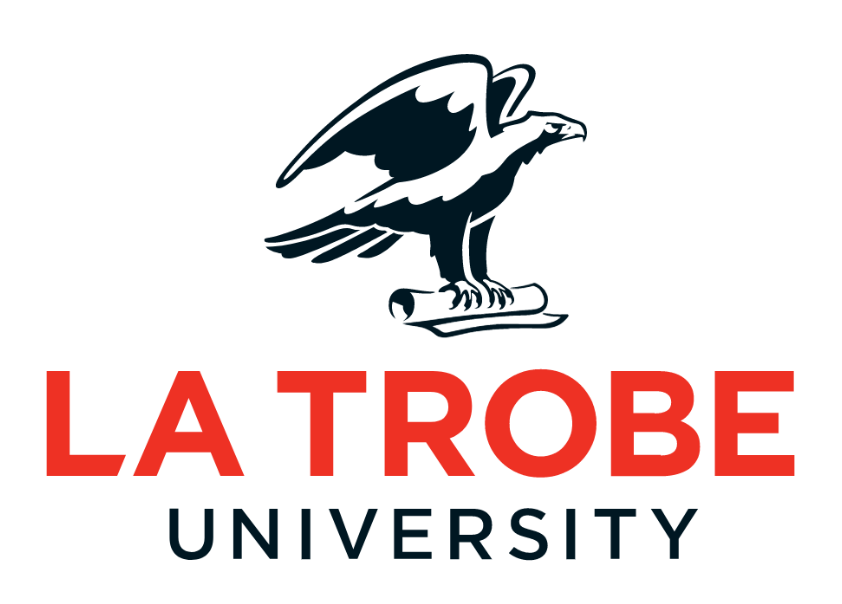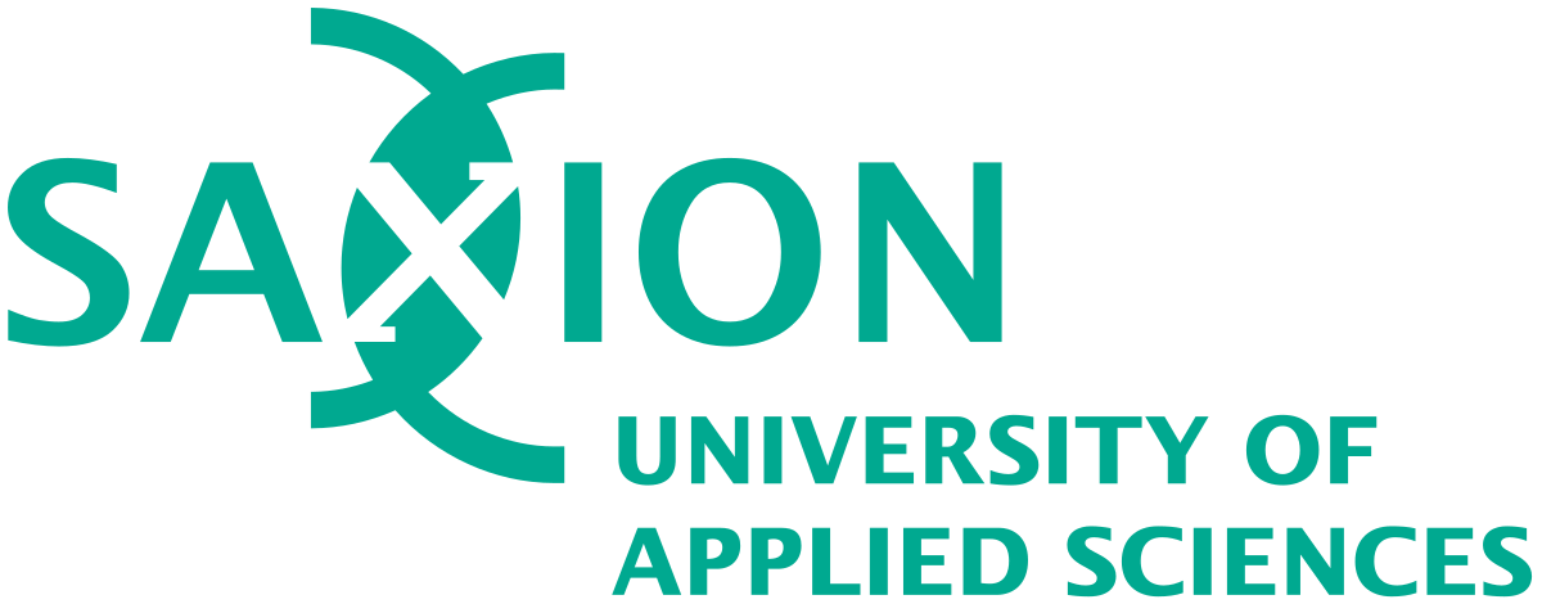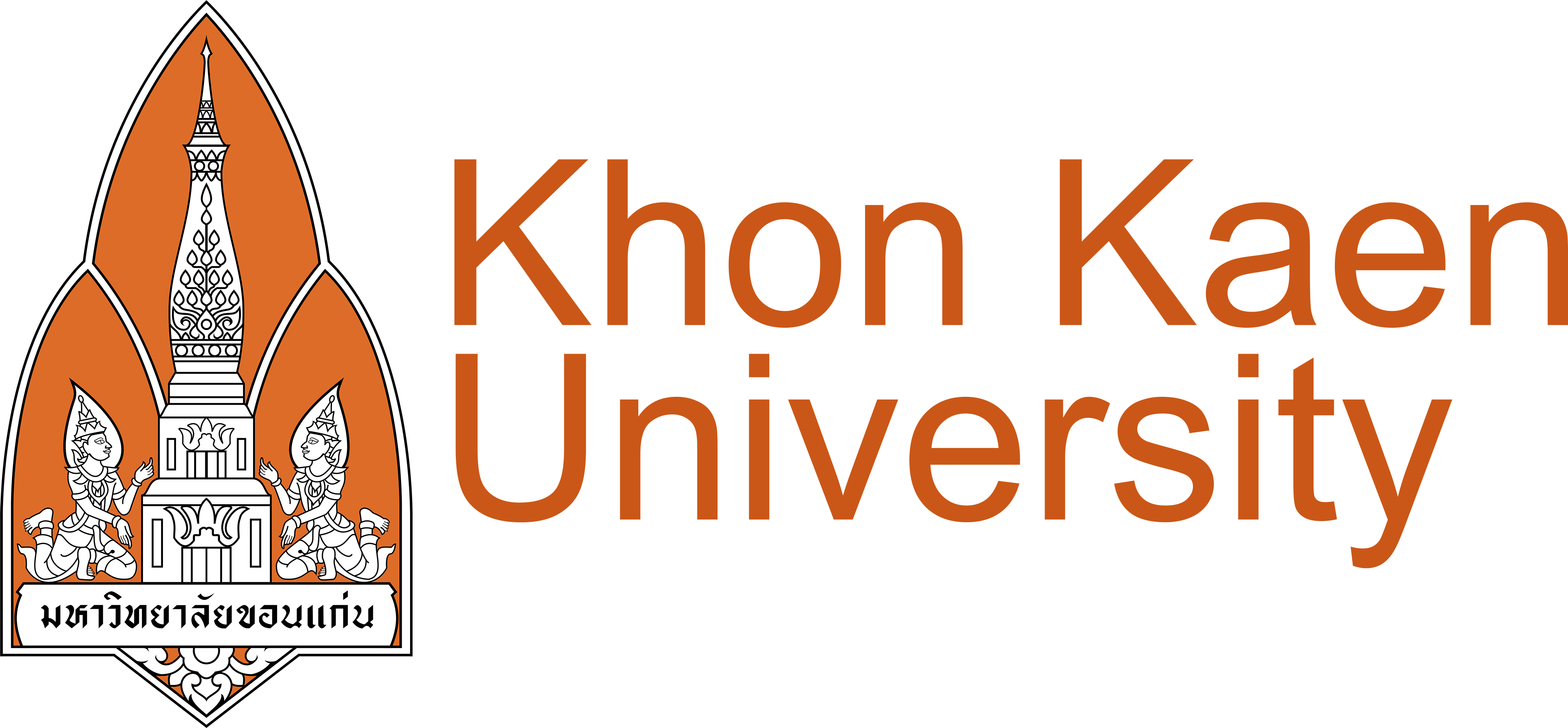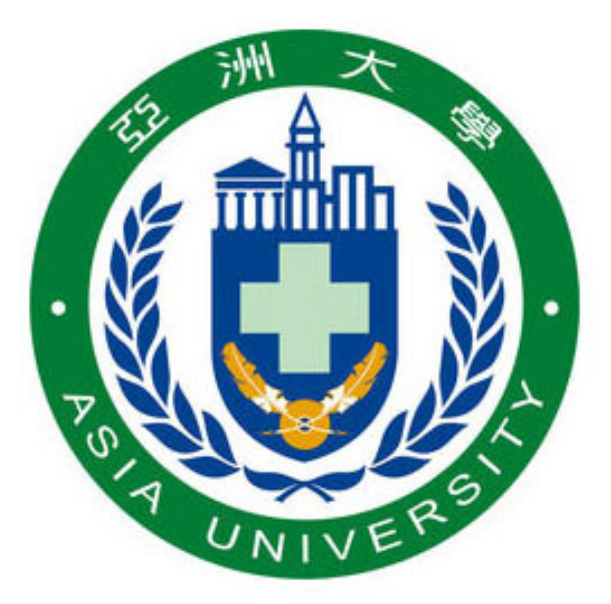The puerperium is a period after the placenta is born and also ends when various kinds of obstetric devices have returned to the state before experiencing pregnancy. This stage of health recovery in the era or puerperium requires care from a whole field and is a period that each of the women goes through after giving birth. During this period a complication of labor can occur either in a direct or indirect way. The puerperium will also last from the time the placenta is born until 6 weeks after birth or for 42 days after the birth period takes place.
In Indonesia according to the World Health Organizations based on data from the World Health Organization (WHO) Maternal Mortality Rate (MMR) in the country of Indonesia has reached an amount of 228/100,000 of live births, this figure is still very much higher when compared to countries that reach the amount of Vietnam 59/100,000, as well as the country of China with an amount of 37/100,000. Such matters place the Indonesian state to be one of the countries with the highest MMR, then for the scope of Asia, the Indonesian state is at the highest rank number 3 and one of them is infection with a percentage of 50%. According to the Central Bureau of Statistics, the mortality rate in Indonesia has reached 189/100,000 live births, and the live birth rate in the Special Region of Yogyakarta has reached 58/100,000 live births.
The cause of most maternal deaths is the presence of a puerperium infection whose origin is from the birth canal opening which is a good location for the growth of germs. The discovery of perineal wound problems experienced by 75% of mothers giving birth vaginally in 2013 found that out of a total of 1951 spontaneous vaginal births, there were 57% of mothers who received perineal sutures with 28% due to episiotomy and 29% due to spontaneous tears. This could be due to the mother’s low postpartum immune system, poor perineal care and hygiene.
Efforts that can be made to prevent the risk of infection are to do perineal wound care, wound care is done in a good way so that it can make wound healing so perineums and so much faster, the role of the family in the healing period of postpartum women by providing psychological support, watching the mother’s psychological patterns, food intake, rest patterns and can also be from the fulfillment of Vitamin A, because Vitamin A can provide assistance for the inflammatory process that occurs during healing. Vitamin A can be obtained from oranges, carrots, potatoes, and eggs.
The ignorance of postpartum mothers about good perineal care and also correct can make the occurrence of infection in the perineal wound area, the possibility of infection will be much greater for mothers who have less or low knowledge due to errors that exist in the care of perineal wounds and also whether the postpartum mother has applied a high-protein diet yet because the fulfillment of her protein needs is increasing to provide assistance in healing wounds both those in the uterine wall or those in the birth canal wound that experienced a suture action, The protein is needed to be used as a building substance that builds the body’s muscle tissue and accelerates the recovery of wounds that return, and also early mobilization is not applied during the postpartum mother because if applied it can make various abdominal and pelvic muscles return to normal so that they become strong and reduce pain, better bowel and bladder function and speed up the various organs of the body back like everything and make blood circulation smooth or normal.
Midwives as an educator in their practice provide health education to postpartum mothers and families by using leaflets or direct counseling media. Leaflets are used because they have the advantage of providing information that is much more detailed and detailed as well as easy to carry anywhere. It is hoped that after the provision of health education conducted with leaflets and counseling, the knowledge of postpartum mothers and their families will also increase. With this increased knowledge, it is hoped that it can contribute to efforts in preventing infections or complications to reduce maternal mortality and also improve health status for families.
Subjects that need to be considered by mothers during the postpartum period:
- Conduct visits and control actions with a minimum time of 4 times, namely at 6 hours, 6 days, 2 weeks, and also 6 weeks after delivery.
The purpose of the importance of conducting postpartum controls / visits is that by visiting up to 40 days of the postpartum period, midwives can monitor the various changes that occur to postpartum women such as the involution stage, monitoring the amount of bleeding and also the lactation stage.
- Checking blood pressure, perineal condition, vaginal bleeding, uterine contractions, signs of infection, temperature in a routine manner, and fundus height.
- Assess gastrointestinal function, urinary function, headache, wound healing.
- Ensure that the mother’s psychological state is still in good condition. How is the atmosphere of emotion that he has, make sure also get a support from the family, as well as from the partner. Because psychological support for postpartum mothers can prevent depression and anxiety.
- Provide education on danger signs in postpartum women such as excessive bleeding, fever, smelly vaginal secretions, shortness of breath or fatigue, severe abdominal pain, swelling in the face and limbs, and swollen and painful breasts. Due to the knowledge of the family as well as the puerpera about the various kinds of danger signs of puerpera, it is very necessary so that the puerpera and family can immediately come to the health facility if they are experiencing danger signs during the puerpera period as described above.
- Provide education about Vulva hygiene because the postpartum period causes complications, including causing infection in the suture wound or on the skin, thus making the healing process of the suture wound slow so it is necessary to clean the vulva and perineum because it can prevent irritation and provide a comfortable feeling to the postpartum mother.
- Maintain rest patterns in postpartum mothers who need adequate rest and sleep which is very useful for making breast milk come out smoothly, accelerating the stages of uterine involution, and restoring the situation and conditions after pregnancy and childbirth so that they can carry out daily activities because if there is a lack of rest or sleep in postpartum mothers, it will reduce breast milk supply, slow the process of uterine involution, and also make the mother unable to care for the baby and feel depressed.
- Provide an education to mothers about balanced nutrition, especially in terms of increasing protein consumption. In theory, balanced nutrition is the composition of daily food that contains nutrients in the type and amount that is adjusted to the conditions and needs of the body, one of which is balanced nutrition to make pereium wound healing faster is protein. Protein is very influential in the stages of healing of perineal wounds because protein has unique uses and functions that cannot be replaced by other nutrients, namely the maintenance of body tissues, growth, and also the repair of a tissue, one of the examples of protein is fish, chicken, nuts, and eggs.
- Education related to when coitus is safe to do after childbirth and also planning for the next pregnancy and the use of contraceptives, the purpose of this is so that the reproductive organs become much faster to recover and minimize the risk of infection of the uterus. As well as spacing the birth of children, improving the welfare of families, as well as increasing the life expectancy of babies and mothers.
- Providing education about the importance of Bounding attachment, namely, not separating the mother and baby during the postpartum period so that the mother and baby are in the same room, always paying attention to the baby’s attachment by the way the mother always takes care of the baby. The benefits of Bounding attachment are that the baby feels cared for, loved, the baby feels safe, strengthens the emotional connection that exists between parents and the baby, helps parents be more sensitive to the needs and signals of the baby.
- Educating mothers on the correct way to breastfeed. This is beneficial in preventing nipple chafing, preventing breast swelling. In theory, mothers can understand the importance of proper breastfeeding education, which will build a strong emotional bond between mother and baby, and the baby gets optimal nutritional intake.
- Providing education about the importance of taking vitamins because giving vitamin A to postpartum women aims to improve the quality of breast milk, then increase endurance, help postpartum health recovery. The provision of pain relievers in the form of Profen with a dose of 200 grams aims to help reduce the pain that causes discomfort in the postpartum period.
The impact of a lack of education in the puerperium is birth canal infection, oedema, resulting in open wound sutures that can cause bleeding. For this reason, it is very important to conduct a postpartum visit or education about postpartum according to the standards and recommendations that have been set. These various small matters can have a big effect if a good and proper treatment is not immediately carried out.
By: Amelia Puspasari, Rosmita Nuzuliana *
D3 Midwifery Students of ‘Aisyiyah University (UNISA) Yogyakarta
24/06/2024/by admin
Tags: aisyiyah, amalku, banggamenjadiunisa, beunisa, unisa, unisayogya
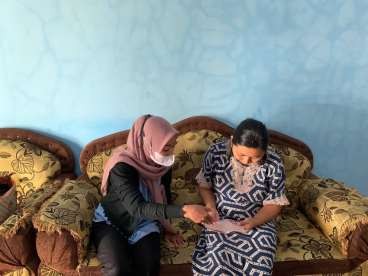
Oleh : Amelia Puspasari, Rosmita Nuzuliana*
Mahasiswa D3 Kebidanan Universitas ‘Aisyiyah (UNISA) Yogyakarta
